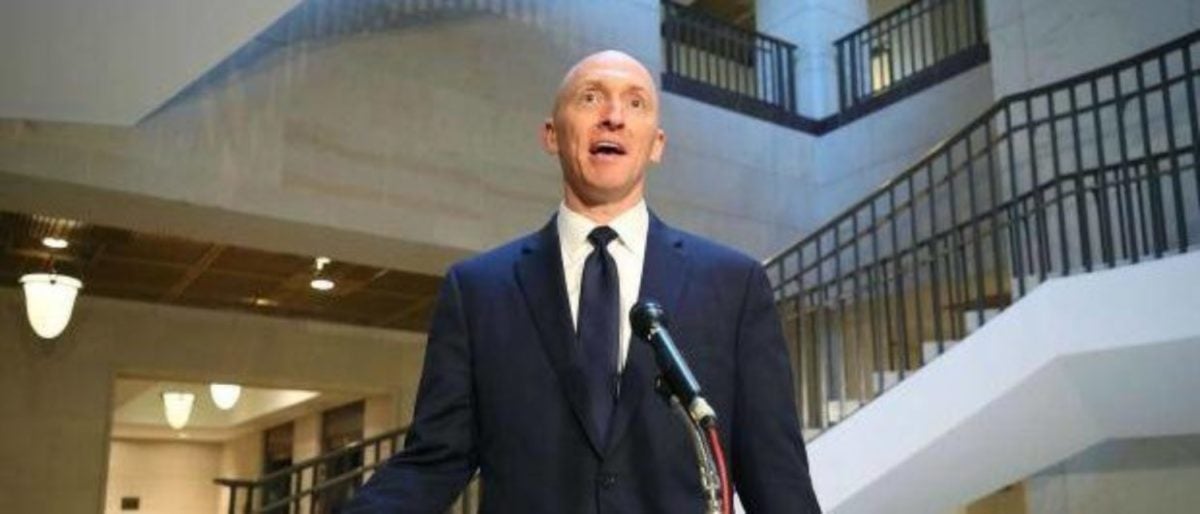MICHAEL ISIKOFF: MEDIA SHOULD HAVE HAD ‘MORE SKEPTICISM’ ABOUT STEELE DOSSIER
- Veteran reporter Michael Isikoff is acknowledging the press should have had “more skepticism” about the Steele dossier.
- Isikoff’s remarks are notable because he is one of a small handful of reporters to have met with dossier author Christopher Steele prior to the 2016 election. Isikoff published an article based on Steele’s information about Carter Page, a former Trump campaign adviser.
- The reporter now admits that the dossier “hasn’t” checked out.
The investigative reporter who broke the first news story based on information from Christopher Steele now says that he and others in the media should have had “more skepticism” about the former British spy’s infamous dossier.
“I think it’s fair to say that all of us should have approached this, in retrospect, with more skepticism, particularly when we didn’t know where it was coming from,” Yahoo! News reporter Michael Isikoff told Vanity Fair.
“It’s been surprising to me the degree to which some people have wanted to maintain that the dossier was checking out when, as far as I can tell, it hasn’t,” he added.
Isikoff is best known in the Russia saga for his Sept. 23, 2016 article about former Trump campaign adviser Carter Page. Isikoff reported that federal officials were investigating claims that Page met secretly in Moscow in July 2016 with two Kremlin insiders.
The FBI cited Isikoff’s report in applications for its surveillance warrants against Page. There is some debate about whether the FBI used the article to bolster the claims in the dossier. If so, that would be problematic since the report was based on information from Steele. House Democrats claimed that the bureau cited Isikoff’s article only to show that Page had publicly denied the allegations about his visit to Moscow.

Former Trump campaign adviser Carter Page following Nov. 2, 2017 testimony before the House Intelligence Committee. (Mark Wilson/Getty Images)
Isikoff’s story attracted little attention when it was published, though the Clinton campaign issued a press release touting the article.
It was later revealed that the report was based on information from Steele, who met with Isikoff and a small handful of reporters in Washington, D.C., in September 2016. Fusion GPS, the opposition research firm that hired Steele on behalf of the Clinton campaign and Democratic National Committee, arranged Steele’s meetings with journalists.
Steele’s dossier, which was published by BuzzFeed on Jan. 10, 2017, included allegations that Page served as the Trump campaign’s liaison to the Kremlin. He was also accused of being part of a “well-developed conspiracy” to influence the 2016 election.
Since it was published, the dossier has served as a roadmap of sorts for the conspiracy theory that President Donald Trump was a Russian agent and members of his campaign colluded with the Kremlin.
The special counsel’s report has all but debunked the most serious allegations from Steele’s report.
Page, who has vehemently denied the dossier’s claims, was not indicted on any conspiracy or foreign agent charges in the special counsel’s probe.
The special counsel’s report also said that Michael Cohen, a former Trump lawyer, did not visit Prague during the campaign, as the dossier claimed.
Isikoff’s criticism is notable because he’s virtually alone among reporters who met with Steele to now publicly criticize the ex-spy’s work.
Isikoff began publicly expressing concerns about Steele’s reporting in December.
“When you actually get into the details of the Steele dossier, the specific allegations, we have not seen the evidence to support them, and in fact, there is good grounds to think that some of the more sensational allegations will never be proven and are likely false,” he told Mediaite. (RELATED: MSNBC Panel Admits Mueller Report ‘Undercuts Almost Everything’ In Steele Dossier)
Isikoff said in the interview with Vanity Fair, published Thursday, that the dossier was based on second- and third-hand information.
“We knew that Steele compiled it, but that Steele did not hear these allegations himself. Somebody else heard them from others and then passed them along. That’s third-hand stuff, which is not usually the kind you want for publishing,” Isikoff said.
Steele compiled the 17 memos of the dossier from sources and sub-sources who lived in Russia or claimed to have insight into the Trump campaign. Steele himself could not visit Russia because of his clandestine work there while with MI6.
Isikoff said that some aspects of the dossier, such as Russia’s attempts to cultivate business relationships with Trump, have shown to be accurate.
“But it’s the specifics that really knocked people over the head, that really set expectations for what Mueller was gonna find — a vast criminal conspiracy of collusion — and the reality seems to be that the relationships are murkier than that,” Isikoff said, while adding: “None of this justifies the Republican jihad to undermine the entire investigation.”
No comments:
Post a Comment